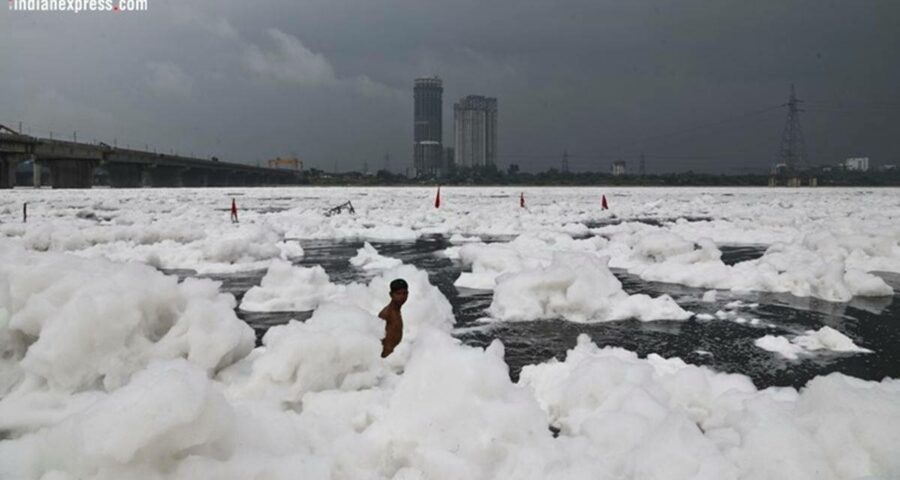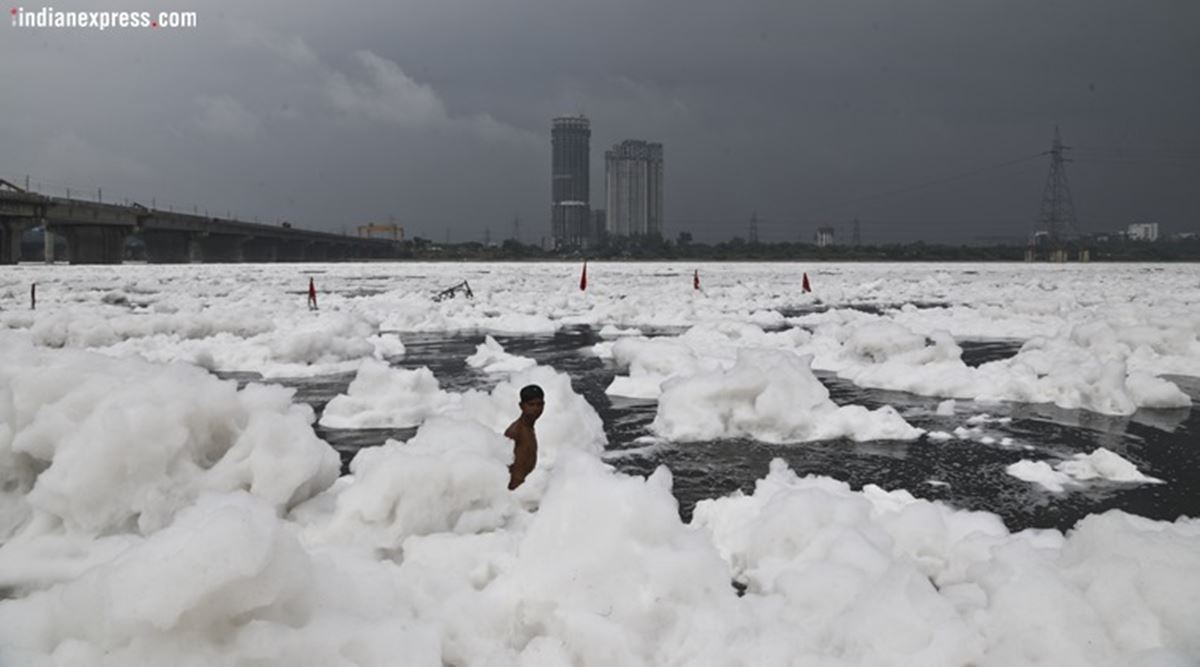It also asked CPCB to “highlight any other source of prominent contamination within the limits of Municipalities” and to “submit priority-wise list of Municipalities, river stretches adjacent to which have been found to be most polluted”.
The hearing of a plea highlighting pollution in Yamuna on Wednesday led the Supreme Court to initiate a legal process against pollution of water bodies by untreated sewage, with the court registering a suo motu writ petition with regard to “Remediation of polluted rivers”.
A bench headed by Chief Justice of India S A Bobde said, “We find that in addition to the issue raised by present petition, it will be appropriate to take suo motu cognisance with regard to the issue of contamination of rivers by sewage effluents and ensure that the mandate is implemented by municipalities as far as discharge of sewage into rivers is concerned.”
The bench, also comprising Justices A S Bopanna and V Ramasubramanian, said, “We deem it appropriate at this stage to start with the issue of contamination of river Yamuna” and issued notice to the states of Uttarakhand, Himachal Pradesh, Haryana, Delhi and Uttar Pradesh; Secretary, Ministry of Environment, Forest and Climate Change; Secretary, Ministry of Housing and Urban Affairs and the Central Pollution Control Board (CPCB).
The court directed CPCB “to submit a report identifying municipalities along the river Yamuna, which have not installed total treatment plants for sewage as per the requirement or have gaps in ensuring that the sewage is not discharged untreated into the river”. It also asked CPCB to “highlight any other source of prominent contamination within the limits of Municipalities” and to “submit priority-wise list of Municipalities, river stretches adjacent to which have been found to be most polluted”.
The court pointed out that Article 243W of the Constitution vests municipalities and local authorities with the performance of functions and implementation of schemes as may be entrusted to them, including those in relation to the matters listed in Twelfth Schedule — Item 6 of the Schedule includes “public health, sanitation conservancy and solid waste management”.
In the 2017 Paryavaran Suraksha Samiti v. Union of India case, it was directed that “norms for generating funds, for setting up and/or operating the ‘Common Effluent Treatment Plant’ as well as ‘Sewage Treatment Plants’ shall be finalised, on or before 31.03.2017, so as to be implemented from the next financial year of that date. It was directed that for the purpose of setting up these plants, the state government will prioritise such cities, towns and villages, which discharge industrial pollutants and sewer directly in rivers and water bodies”, the court said.
The bench was hearing a plea by Delhi Jal Board, alleging that Haryana was dumping untreated discharge in the Yamuna, leading to a spike in ammonia levels.
The court said the plea highlights an issue of great significance not only for the public but all living beings dependent upon open surface water.
The court appointed Senior Advocate Meenakshi Arora as amicus curiae in the matter.
Source: Read Full Article


